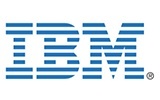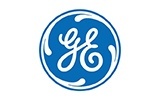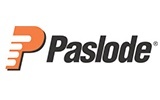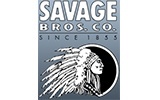
Injection molding is widely used nowadays for mass production of identical parts with utmost precision and tolerances. This manufacturing technique has gained immense popularity owing to high repeatability and design flexibility. This process can be performed with several materials possessing different features and properties. However, which material to choose highly depends on the parts to be manufactured, their required properties, and applications. Some popular types of injection molding materials include Polyether Ether Ketone (PEEK), Acrylonitrile Butadiene Styrene (ABS), ZENITE, and Nylon. Acrylic injection molding is one preferred method for producing several identical parts using acrylic molding material. At Veejay Plastic, we manufacture different parts using this technique.
Acrylic injection molding is also known as polymethyl methacrylate (PMMA) injection molding. In this process, acrylic thermoplastic polymer/organic glass is heated to liquefy the material. Afterwards, it is injected into a customized mold using a high-pressure injection tool. This is because designing and creating demands more time, especially for heavy-duty, expensive materials. The initial lead time and tooling costs required for this method are greater than thermoforming. However, tooling is a one-time cost. So, for mass production and reiteration of orders, acrylic injection molding can offer a lower unit cost. The molds produced by this method are used to make aquariums, mobile screens, car windows, and more. Acrylic as a molding material is preferred as it has superior abrasion resistance
With an abundance of other types of injection molding techniques, why do many industries employ acrylic injection molding technique? This is because of the benefits this method offers. The following are some important ones.
In the plastic injection molding industry, acrylic refers to acrylic resins. These are thermoplastics derived from acrylic and methacrylic acids. Also, it is a general term given to any plastic, which has been generated using polymerization.
The most popular types of acrylic resins are Polymethyl Acrylate, and Polymethyl Methacrylate. The details of these two resins are given below.
Also known as PMA, polymethyl acrylate is a synthetic hydrophobic polymer. The glass transition temperature of this resin is low, about 50oF. As a resin, PMA feels leathery upon touch, and is known to have immense toughness and flexibility. However, it is sensitive to water, and cannot maintain its stability against alkalis. Polymethyl acrylate is mainly used in the textile industry, and in leather finishing applications.
Also known as PMMA, this is a transparent acrylic plastic, and is often used as a casting resin for industrial coatings. It can also be used as an alternative to glass. This acrylic resin is known for its toughness, and good resistance against weather elements.
Also known as acrylic glass, PMMA is often used as a substitute for polycarbonate in applications where there is no need for immense strength. It is easy to handle and process, and can be cut, molded, drilled, formed, and colored. It is mainly used to create lightweight automobile components. It is also used in the manufacturing of shields and safety equipment. Commercial applications include fixture and decorative components.
The table below provides the technical specifications of acrylic plastics.
Maximum Temperature |
Tensile |
Impact |
Chemical Resistance |
Flexural Modulus |
183 - 217 °F |
2800 - 10,9000 PSI |
22 - 1.1 ft-lb./in. Notched Izod |
Excellent |
221,000 - 534,000 PSI |
Would you like to know more about the acrylic injection molding services? If yes, then do visit our website to know more about our product offering, and get in touch with our highly-skilled team of experts to solve your queries. We are committed to delivering high-quality products at competitive prices in the shortest turnaround times. Our vast injection molding research investments and experience over the years have helped us in many ways to stay true to this commitment. To know more about acrylic resins and acrylic plastics, get in touch with us on our toll-free number 847-683-2954, or email us at info@veejayplastic.com.
Micro Injection Molded Parts For Cryogenic Insulation
Veejay plastic injection molding company has successfully completed micro injection molding... ( Read More )














